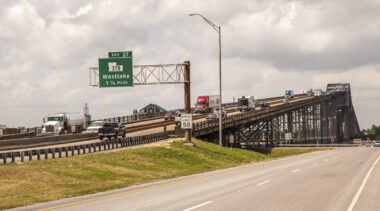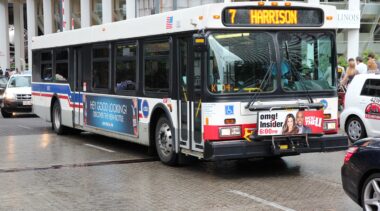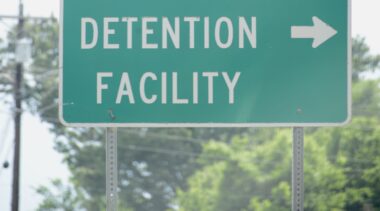-
Texas legislature should prioritize open enrollment and TRS reform in special session
School choice and public school advocates should agree to let students attend any public school with open seats and address the Teacher Retirement System's $63 billion debt.
-
A public-private partnership is the best way to rebuild Louisiana’s Calcasieu Bridge
Financial risks are transferred from taxpayers to private investors, including responsibility for cost overruns, late completion, failure to meet traffic forecasts, and toll revenue shortfalls.
-
Flavored products play an important role in tobacco harm reduction
Most smokers who switch to safer nicotine alternatives use flavored products.
-
Five actions transit agencies should take in the next two years
With transit ridership down, most large transit agencies will likely face a severe financial cliff in late 2024 when federal stimulus funds have been depleted.
-
Debunking the myth that vaping causes popcorn lung
There is no evidence that e-cigarettes cause popcorn lung. In fact, all of the evidence points to the contrary.
-
California’s Age-Appropriate Design Code Act threatens the foundational principle of the internet
The AADC’s age assurance requirement erects onerous barriers that would discourage internet use and chill protected speech.
-
Five actions transit agencies should take immediately
U.S. transit agencies need to make a series of changes that will reform their boards, contract out service, and better serve riders.
-
Examining recent crime trends and flaws in national statistics
It is important to understand crime data in context and avoid reactionary policy decisions.
-
Tolling rural Interstate corridors
Using tolling to refinance the reconstruction of rural highways is the most realistic option to rebuild and expand these important roadways.
-
Monetary sanctions and court fees are counterproductive to the goals of juvenile justice
Each year, an estimated 1 million youth enter juvenile courts.
-
Text message reminders can improve community supervision outcomes and reduce inefficiency
Nearly 3.7 million adults are on community supervision programs like probation and parole–that’s nearly twice the number of people incarcerated in jail or prison.
-
State tobacco and nicotine preemption and public health promotion
To maximize the benefits to public health, state legislators should preemptively reserve their state’s right to regulate nicotine products.
-
Video Game Loot Boxes: Anatomy of a Moral Panic
There is no evidence to suggest that loot box spending is excessive among adults or adolescents or that it is responsible for any widespread harm.
-
Taxes on tobacco alternatives undermine harm reduction efforts
To maximize the benefits to public health and advance the economic well-being of consumers, taxes on safer nicotine products should be kept lower than those of combustible cigarettes.
-
Unintended consequences of proposed menthol prohibition
With adult and youth smoking reaching generational lows and still falling, there is little reason to use the blunt force of prohibition to reduce smoking rates.
-
Providing returning citizens with IDs and other essential documents can facilitate the reentry process
Over 80% of prisoners will eventually be released and roughly 500,000 people are released from prison each year.
-
Strategies for improving community supervision programs
Nearly 3.7 million adults are on community supervision programs like probation and parole across the United States.
-
Occupational licensing reform can reduce barriers to employment faced by former offenders
Lawmakers should consider occupational licensing reform to reduce government-imposed barriers to employment for former offenders.

















